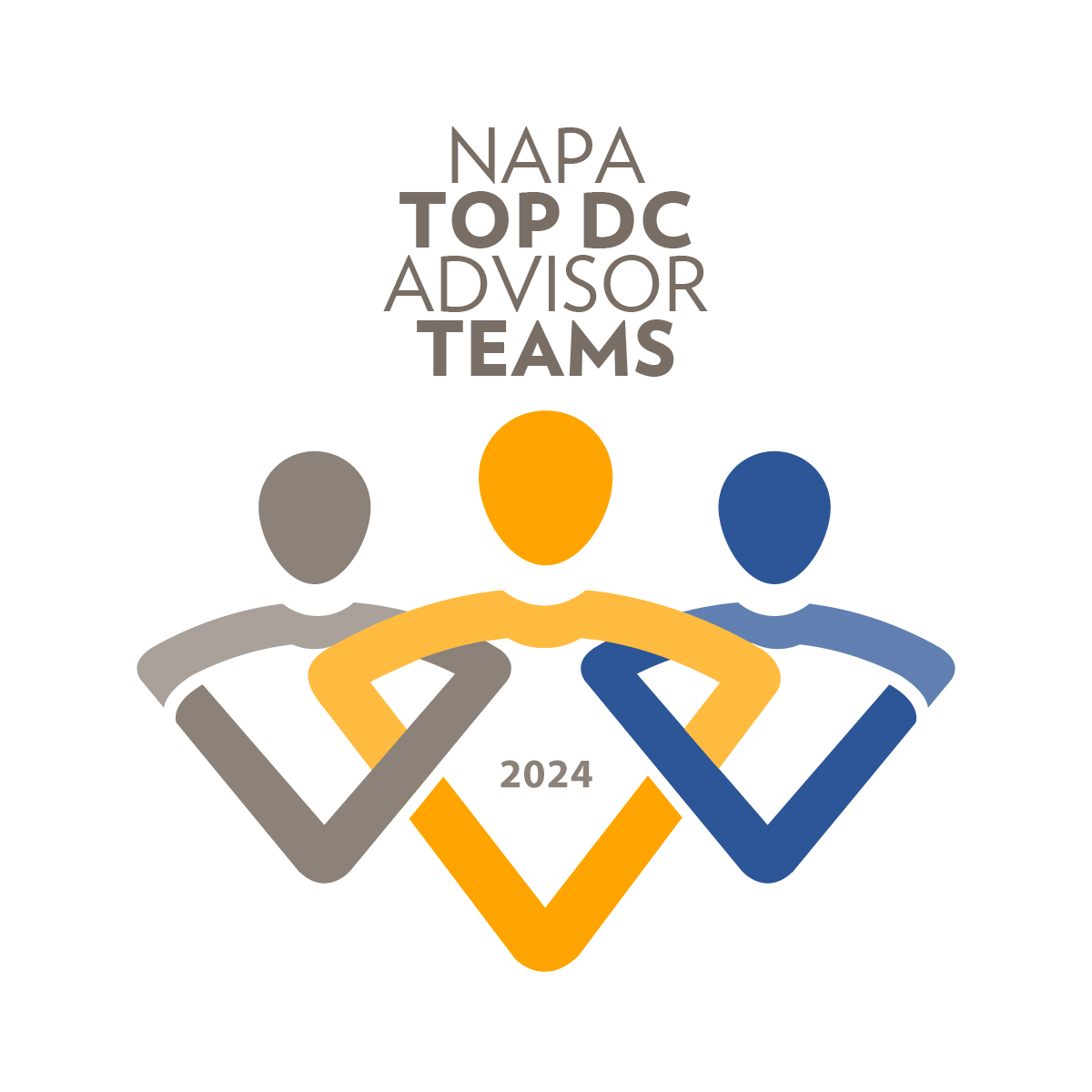Archives
An Open Letter to the Plan Adviser Industry
Last Updated: August 24, 2016
 It is time for the Plan Adviser profession to move past our relationship mentality, jettison our past and grow into the profession that will serve our clients and us better. Relationships, or more correctly stated, our dependence upon them, are holding us back and threaten the unrealized value of our profession.
Contrary to popular axioms like, “this is a relationship business” or “a practice is built on relationships” or “make your client your friend because people don’t fire their friends”, relationships can actually undermine our most valuable asset – trust.
Performance, not relationships, should be our standard.
We have emphasized relationships because of our history and because of the product sponsors that dominate our industry. Plan advisers by large measure have grown out of the investment advice industry, a subset itself of the broader financial services industry.
This history has brought with it an emphasis on product sales, which itself is rooted in salesmanship. Don’t get me wrong, sales are crucial to every organization and a good salesperson is worthy of our admiration. But, let’s be honest, in our history, survival as an adviser depended mostly on sales ability, not expertise.
Too often in our roots of financial advice, professional training centered on product information or financial strategies that were intended to result in a recommendation of a product. This training served to help spot opportunities to sell financial services products, which generated income for the adviser and product sponsor. Knowledge was a means to an end, not the end itself.
Also influencing our reliance on relationships was the formation of advisers compared to product sponsors. Our practices are large in number but diffuse and individually small, in comparison to the smaller in number but much larger individual product sponsors. Separately, we have been no match for their resources and they have had their way with us.
Viewed from the perspective of the financial product sponsors, our value is based upon our relationships. The more relationships we have, the more valuable we are to them. Relationships are the thing they need and want from us. Is it any wonder then, that they promote relationships as our value?
We are, to them, a distribution channel. And our sales of their products have made them powerful. Very powerful. Take a look at the next industry conference you attend. Guess who foots the bill for most of it? Now, consider our industry lobbying efforts. Whose interests would you guess is really protected? You can bet that while the lobbyist will promote the number of professional advisers in our industry to get attention on Capitol Hill, it is the money of product sponsors that direct their conversations. Money drives influence and our relationships have poured lots of money into their bank accounts.
The product sponsors want us to focus on relationships. Meanwhile our clients, the plan sponsors and fiduciaries, have a very important responsibility. In the purest sense, they are charged with dispassionately, expertly, at an arms-length distance, managing the retirement plan on behalf of the plan’s participants and beneficiaries. From their perspective, our relationship (or friendship) is not very valuable. From their perspective, our value is based (or should be based) upon the outcomes we produce for the employer, fiduciaries and plan participants. Stated another way, our value is based upon our performance for the plan.
That is not to say that our clients, like everyone else, don’t value working with someone they like. Of course, they want to have a good relationship with us.
Truthfully, in fact, we have an interest in building good relationships with prospects and clients. From our perspective, we earn more money if we build relationships with prospective clients. The better we are at building relationships, the more clients we will have and the more income we will make. For existing clients, the better relationships that we have with them, the more likely they are to stay with us. Our personality and our relationships determine the number of clients that we have and the retention rate for those clients.
But by emphasizing relationships over performance, we undercut ourselves. Relationships should be viewed as the conduit to our performance and value to the plan. By themselves, they don’t further anyone’s cause or improve anyone’s standing.
As for us, we will earn more money if we grow into a true profession. The value of our business, like any professional services firm, is based largely upon reputation and goodwill. A good reputation, one in which our loyalty to our clients is apparent, is surely more valuable in the long run. The goodwill we would amass is surely greater if we become a profession whose value is obvious. Reputation and goodwill are derived from the trust the plan sponsor market has in us individually and our profession collectively. Trust, therefore, is where the value lies.
It is true that trust can be created by our relationships. But this form of trust is shallow and only benefits the few people that we have built those relationships with. Whereas trust built upon plan performance is deep and benefits many.
Plan advisers, as a profession, can offer a strong value proposition for our clients. We possess, in the work we can provide, ample opportunity for the deeper client trust.
The plan sponsor benefits from our guidance on plan design and plan governance. Fiduciaries are protected by the structure we bring to their job and the information we provide to them about the decisions they must make. Participants benefit from the impact of our performance on investments, plan vendors and participation.
With such a strong value proposition, we should want to be valued by our performance, not by our relationships. If we have made a significant contribution to the plan’s performance, our value will be easy to see. If we haven’t, our relationships should not mask this fact. In this way, the advisers who produce the most value to our clients will grow and those who do not won’t.
Performance, not relationships, should be our standard. In this way, we will achieve what everyone is seeking – a trusted adviser. An honorable profession.
It is time for the Plan Adviser profession to move past our relationship mentality, jettison our past and grow into the profession that will serve our clients and us better. Relationships, or more correctly stated, our dependence upon them, are holding us back and threaten the unrealized value of our profession.
Contrary to popular axioms like, “this is a relationship business” or “a practice is built on relationships” or “make your client your friend because people don’t fire their friends”, relationships can actually undermine our most valuable asset – trust.
Performance, not relationships, should be our standard.
We have emphasized relationships because of our history and because of the product sponsors that dominate our industry. Plan advisers by large measure have grown out of the investment advice industry, a subset itself of the broader financial services industry.
This history has brought with it an emphasis on product sales, which itself is rooted in salesmanship. Don’t get me wrong, sales are crucial to every organization and a good salesperson is worthy of our admiration. But, let’s be honest, in our history, survival as an adviser depended mostly on sales ability, not expertise.
Too often in our roots of financial advice, professional training centered on product information or financial strategies that were intended to result in a recommendation of a product. This training served to help spot opportunities to sell financial services products, which generated income for the adviser and product sponsor. Knowledge was a means to an end, not the end itself.
Also influencing our reliance on relationships was the formation of advisers compared to product sponsors. Our practices are large in number but diffuse and individually small, in comparison to the smaller in number but much larger individual product sponsors. Separately, we have been no match for their resources and they have had their way with us.
Viewed from the perspective of the financial product sponsors, our value is based upon our relationships. The more relationships we have, the more valuable we are to them. Relationships are the thing they need and want from us. Is it any wonder then, that they promote relationships as our value?
We are, to them, a distribution channel. And our sales of their products have made them powerful. Very powerful. Take a look at the next industry conference you attend. Guess who foots the bill for most of it? Now, consider our industry lobbying efforts. Whose interests would you guess is really protected? You can bet that while the lobbyist will promote the number of professional advisers in our industry to get attention on Capitol Hill, it is the money of product sponsors that direct their conversations. Money drives influence and our relationships have poured lots of money into their bank accounts.
The product sponsors want us to focus on relationships. Meanwhile our clients, the plan sponsors and fiduciaries, have a very important responsibility. In the purest sense, they are charged with dispassionately, expertly, at an arms-length distance, managing the retirement plan on behalf of the plan’s participants and beneficiaries. From their perspective, our relationship (or friendship) is not very valuable. From their perspective, our value is based (or should be based) upon the outcomes we produce for the employer, fiduciaries and plan participants. Stated another way, our value is based upon our performance for the plan.
That is not to say that our clients, like everyone else, don’t value working with someone they like. Of course, they want to have a good relationship with us.
Truthfully, in fact, we have an interest in building good relationships with prospects and clients. From our perspective, we earn more money if we build relationships with prospective clients. The better we are at building relationships, the more clients we will have and the more income we will make. For existing clients, the better relationships that we have with them, the more likely they are to stay with us. Our personality and our relationships determine the number of clients that we have and the retention rate for those clients.
But by emphasizing relationships over performance, we undercut ourselves. Relationships should be viewed as the conduit to our performance and value to the plan. By themselves, they don’t further anyone’s cause or improve anyone’s standing.
As for us, we will earn more money if we grow into a true profession. The value of our business, like any professional services firm, is based largely upon reputation and goodwill. A good reputation, one in which our loyalty to our clients is apparent, is surely more valuable in the long run. The goodwill we would amass is surely greater if we become a profession whose value is obvious. Reputation and goodwill are derived from the trust the plan sponsor market has in us individually and our profession collectively. Trust, therefore, is where the value lies.
It is true that trust can be created by our relationships. But this form of trust is shallow and only benefits the few people that we have built those relationships with. Whereas trust built upon plan performance is deep and benefits many.
Plan advisers, as a profession, can offer a strong value proposition for our clients. We possess, in the work we can provide, ample opportunity for the deeper client trust.
The plan sponsor benefits from our guidance on plan design and plan governance. Fiduciaries are protected by the structure we bring to their job and the information we provide to them about the decisions they must make. Participants benefit from the impact of our performance on investments, plan vendors and participation.
With such a strong value proposition, we should want to be valued by our performance, not by our relationships. If we have made a significant contribution to the plan’s performance, our value will be easy to see. If we haven’t, our relationships should not mask this fact. In this way, the advisers who produce the most value to our clients will grow and those who do not won’t.
Performance, not relationships, should be our standard. In this way, we will achieve what everyone is seeking – a trusted adviser. An honorable profession.



